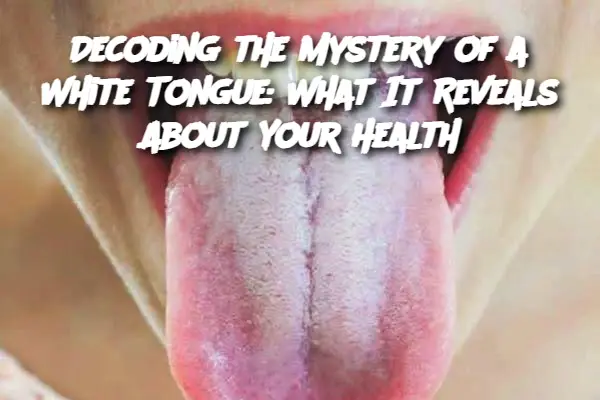ADVERTISEMENT
The causes of a white tongue can vary depending on your lifestyle, diet, and overall health. Some potential variations include:
Oral Thrush: A fungal infection that causes a thick white coating on the tongue and may require antifungal treatment.
Geographic Tongue: A condition that causes map-like patterns on the tongue, sometimes with a white appearance around the edges.
Lichen Planus: An autoimmune condition that can cause white patches or streaks on the tongue, often accompanied by discomfort.
Leukoplakia: A condition characterized by thick, white patches on the tongue, which may be precancerous and requires medical attention.
Frequently Asked Questions:
Q: How do I know if my white tongue is a sign of a serious health problem?
A: While a white tongue is usually harmless, if it persists for more than a few days, is accompanied by pain, or is associated with other symptoms like fever or difficulty swallowing, it’s a good idea to consult a healthcare professional.
Q: Can dehydration cause a white tongue?
A: Yes, dehydration can lead to a dry mouth, which can cause the accumulation of bacteria, dead skin cells, and debris on the tongue, resulting in a white coating.
Q: How can I prevent a white tongue from coming back?
A: Maintaining a proper oral hygiene routine, staying hydrated, and avoiding irritants like tobacco and excessive alcohol can help prevent the development of a white tongue.
Q: Can stress contribute to a white tongue?
A: Yes, stress can impact your immune system and oral health, making you more prone to conditions like oral thrush, which can cause a white tongue.
By understanding the causes and taking proactive steps, you can manage a white tongue effectively and restore your oral health. If the condition persists or worsens, seeking professional guidance can help ensure that any underlying issues are properly addressed.
ADVERTISEMENT
